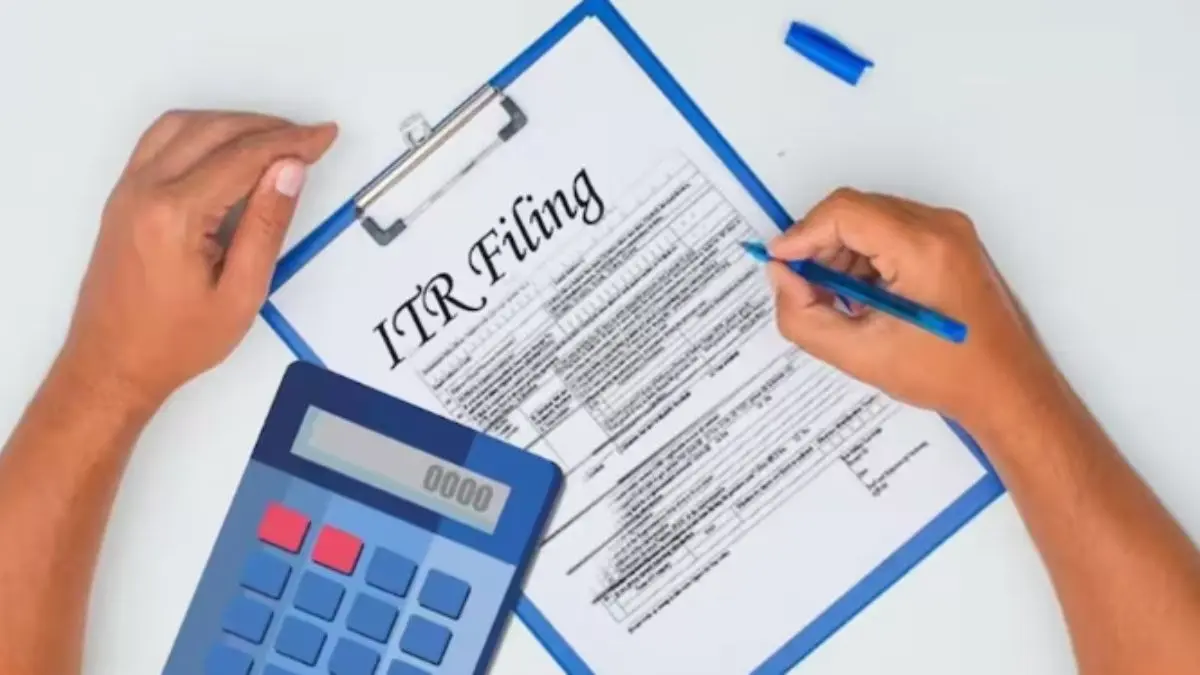Updated 28 May 2025 at 08:24 IST
ITR 2025-26 Filing Date Extended: Big Relief Or Bigger Confusion For Taxpayers?
The Income Tax Department has extended the ITR 2025-26 filing date to September 15, 2025, offering relief to individual taxpayers and small businesses. With new structural changes in ITR forms and delayed utility rollout, the extension gives more time for accurate filing. However, tax payment timelines remain uncertain.
- Republic Business
- 5 min read

In a significant relief to taxpayers, the Central Board of Direct Taxes (CBDT) has officially extended the due date for filing Income Tax Returns (ITRs) for Assessment Year (AY) 2025-26 from 31st July 2025 to 15th September 2025. The announcement comes amid delays in the release of revised ITR forms and the required filing utilities.
This move is expected to benefit a large section of individual taxpayers and small businesses not subject to tax audits, who otherwise face a crunch in the limited return filing window every year.
Why Was the Deadline Extended?
The extension follows multiple delays this year — particularly in notifying new ITR forms, development of filing utilities, and the availability of complete TDS data.
According to a press release issued by the Income Tax Department, "The notified ITRs for AY 2025-26 have undergone structural and content revisions aimed at simplifying compliance, enhancing transparency, and enabling accurate reporting." These revisions have pushed back the timeline for developing and testing the corresponding e-filing utilities.
The CBDT also noted that credits from TDS statements (due by 31st May 2025) usually begin reflecting only by early June, thereby reducing the effective time window for ITR filing. Since accurate TDS data is essential for correct return filing, the delay in reflection necessitated an extension.
Major Changes in ITR Forms for FY 2024-25
Taxpayers must note that this year’s ITR forms bring significant structural changes aimed at improving reporting accuracy:
ITR-1 now includes an option to report long-term capital gains (LTCG) up to Rs 1.25 lakh.
ITR-2, 3, 5, and 6 require detailed disclosures under the Capital Gains schedule, with distinct reporting for transactions before and after 23 July 2024, following changes in tax laws last year.
The department aims to roll out partially pre-filled returns, which require further data validation and integration before being made available to users.
These changes have made it necessary to overhaul filing systems and utilities, contributing to the delay in readiness.
Taxpayers Urged to Pay Taxes by July 31 to Avoid Interest
While the filing date has been pushed back, the CBDT has not clarified whether the due date for tax payment also stands extended. This raises concern over interest applicability under Section 234A of the Income Tax Act.
"It is important to note that the press release is silent on the due date for tax payment and whether interest under Section 234A will be applicable if taxes are paid after 31 July 2025,” explained Gaurav Makhijani, Associate Partner and Head of Tax (North India & Gujarat), Rödl & Partner India.
He further advised, “Taxpayers are advised to deposit any self-assessment tax on or before 31 July 2025 to avoid potential interest implications. This would also help avoid interest under Section 234B for shortfall in advance tax.”
This means even if you file your return in September, you may be liable to pay interest if full taxes are not paid by July 31.
Tax Experts Welcome the Move but Want a Permanent Fix
Experts in the tax domain have long highlighted the narrow window taxpayers face each year between TDS reflection and the ITR deadline. Welcoming the extension, Vivek Jalan, Partner at Tax Connect Advisory Services LLP, stated: “The timeline of 31st July of filing ITRs for taxpayers is a big hardship every year. Every year there are changes in ITRs structure which means utilities take time to be published. Every year TDS/TCS credits are reflected by 15th June, which means effectively only 1.5 months are available for filing such ITRs.”
He added, “It is a welcome move of extending the due date to 15th September this year. However, it is a long-standing demand of taxpayers that the due date be permanently extended to 31st August.”
Jalan further suggested that this demand could be addressed in the upcoming New Income Tax Bill 2025, expected to be implemented from 1st April 2026.
Impact on Different Taxpayer Groups
The deadline extension primarily benefits:
Salaried individuals who rely on Form 16 and TDS statements for filing.
Small businesses and professionals are not subject to tax audit.
Taxpayers dealing with capital gains, given the additional disclosures required this year.
Advertisement
For these taxpayers, the extended window provides additional time to collect documents, reconcile TDS, and file accurately under the revised formats.
However, those with tax dues must remain vigilant. Until the department issues further clarification, interest on late payment may apply even if returns are filed within the new deadline.
Key Takeaways for Taxpayers
New ITR forms require more detailed disclosures, especially under capital gains.
ITR 2025-26 filing date is now 15 September 2025, giving taxpayers more time to comply.
No confirmation yet on extension of tax payment deadline — interest under Section 234A may still apply.
Taxpayers are advised to pay any self-assessment tax by 31 July to avoid penalties.
Experts are calling for a permanent extension to the ITR deadline in future tax laws.
Advertisement
The extension of the ITR 2025-26 filing date to 15th September 2025 comes as a welcome step, giving much-needed breathing room to taxpayers. But it also underscores the need for timely rollouts and better alignment between TDS credits and ITR utilities in the long run. Until then, taxpayers should stay alert, especially about timely tax payments, to avoid unnecessary interest or penalties.
Published By : Gunjan Rajput
Published On: 28 May 2025 at 08:24 IST
